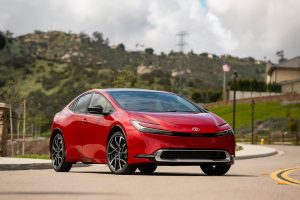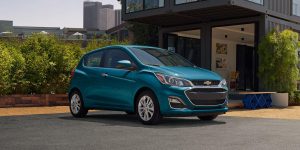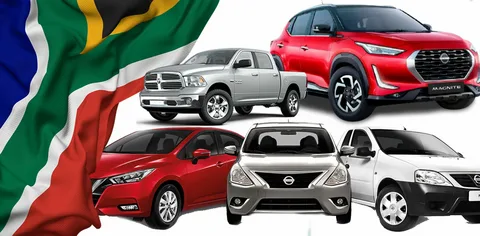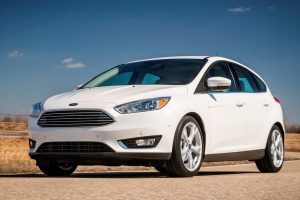Autos & Vehicles
Best Fuel Efficient Cars Under 10K: Top Picks for Budget-Savvy Drivers

Introduction
As concerns about environmental sustainability grow, and fuel prices continue to fluctuate, the demand for fuel-efficient vehicles has surged. For budget-conscious consumers seeking eco-friendly options, the prospect of finding a fuel-efficient car under 10K might seem daunting. However, this comprehensive guide aims to simplify the process by highlighting some of the best options available.
Understanding Fuel Efficiency
Fuel efficiency is a measure of how far a vehicle can travel per unit of fuel. It’s typically expressed in miles per gallon (MPG) and plays a crucial role in reducing fuel costs and minimizing environmental impact. Factors such as engine technology, vehicle weight, aerodynamics, and driving habits all influence fuel efficiency. By prioritizing fuel-efficient cars, consumers can not only save money on fuel but also contribute to a greener planet.
Criteria for Selection
When searching for a fuel-efficient car under 10K, several factors should be considered:
- Fuel Economy Ratings: Look for vehicles with high MPG ratings for both city and highway driving.
- Vehicle Size: Smaller cars tend to be more fuel-efficient than larger ones due to their lighter weight and reduced aerodynamic drag.
- Engine Type: Consider vehicles with modern engine technologies such as hybrids or turbocharged engines, which are designed for improved fuel efficiency.
- Transmission: Automatic transmissions often offer better fuel economy than manual transmissions.
- Maintenance Costs: Factor in the long-term maintenance and repair costs, as they can impact the overall affordability of the vehicle.

Image by: carbuzz.com
By carefully evaluating these factors, consumers can make an informed decision when selecting a fuel-efficient car.
Top Picks Under 10K
Let’s explore some of the top fuel-efficient cars available for under 10K:
- Toyota Prius: Renowned for its hybrid technology and impressive fuel efficiency, the Toyota Prius remains a popular choice among eco-conscious drivers. With its sleek design and advanced features, the Prius offers exceptional mileage and low emissions.
- Honda Civic: Combining fuel efficiency with reliability and comfort, the Honda Civic is a versatile option for budget-conscious consumers. With its efficient engine options and spacious interior, the Civic delivers excellent fuel economy without compromising on performance.
- Ford Fiesta: The Ford Fiesta is a compact car known for its fuel efficiency and agile handling. With its range of efficient engines and stylish design, the Fiesta offers a fun and economical driving experience.
- Nissan Versa: Offering good fuel economy and a spacious interior, the Nissan Versa is an affordable option for eco-conscious buyers. With its efficient engine options and practical design, the Versa is perfect for daily commuting and city driving.
- Chevrolet Sonic: The Chevrolet Sonic is a subcompact car that delivers impressive fuel efficiency and a host of features. With its efficient engine and modern styling, the Sonic is ideal for urban driving and weekend getaways.

Image by: carbuzz.com
These top picks combine affordability with fuel efficiency, making them attractive options for eco-conscious consumers on a budget.
Best Fuel-Efficient AWD Cars
For consumers seeking all-wheel-drive (AWD) capability without sacrificing fuel efficiency, there are several options available:
- Subaru Impreza: The Subaru Impreza offers the versatility of AWD without compromising on fuel economy. With its efficient engine options and capable AWD system, the Impreza delivers excellent mileage and all-weather performance.
- Toyota RAV4: The Toyota RAV4 is a compact SUV known for its fuel efficiency and reliability. With its available AWD system and efficient engine options, the RAV4 provides excellent fuel economy and off-road capability.
- Honda CR-V: The Honda CR-V combines fuel efficiency with spaciousness and comfort. With its available AWD system and efficient engine, the CR-V offers impressive mileage and versatility for eco-conscious drivers.
Image by: carbuzz.com
These AWD vehicles offer the traction and stability needed for various driving conditions while still delivering excellent fuel economy.
Most Fuel-Efficient Toyota Cars
Toyota has a reputation for producing fuel-efficient vehicles that offer outstanding mileage and reliability. Here are some of the most fuel-efficient Toyota cars available for under 10K:
- Toyota Prius: As a pioneer in hybrid technology, the Toyota Prius continues to set the standard for fuel efficiency. With its innovative features and aerodynamic design, the Prius delivers exceptional mileage and low emissions.
- Toyota Corolla: The Toyota Corolla is a compact car known for its fuel efficiency and dependability. With its efficient engine options and comfortable interior, the Corolla offers excellent fuel economy and value for money.
- Toyota Camry Hybrid: The Toyota Camry Hybrid combines fuel efficiency with the comfort of a midsize sedan. With its efficient engine and spacious interior, the Camry Hybrid delivers impressive mileage and a smooth driving experience.
Toyota models like the Prius, Corolla, and Camry Hybrid offer exceptional fuel economy and performance, making them top choices for eco-conscious consumers.
Ford Fuel-Efficient Cars
Ford offers a range of fuel-efficient vehicles equipped with advanced technologies for optimal performance. Here are some of the best Ford models for fuel efficiency:
- Ford Fiesta: The Ford Fiesta is a compact car known for its fuel efficiency and nimble handling. With its range of efficient engines and stylish design, the Fiesta offers impressive mileage and a fun driving experience.
- Ford Fusion Hybrid: The Ford Fusion Hybrid combines fuel efficiency with the comfort of a midsize sedan. With its efficient engine and spacious interior, the Fusion Hybrid offers impressive mileage and refined driving dynamics.
- Ford Focus: The Ford Focus is a versatile compact car that delivers excellent fuel efficiency and performance. With its efficient engine options and advanced features, the Focus offers a dynamic driving experience.
Image by: carbuzz.com
Ford models like the Fiesta, Focus, and Fusion Hybrid provide outstanding fuel efficiency and value, making them popular choices for eco-conscious consumers.
Maintenance Tips
Maintaining optimal fuel efficiency and prolonging the lifespan of your vehicle requires regular upkeep. Here are some maintenance tips to ensure your car runs smoothly:
- Regular Servicing: Follow the manufacturer’s recommended maintenance schedule for routine services such as oil changes and filter replacements.
- Tire Maintenance: Keep your tires properly inflated and aligned to minimize rolling resistance and improve fuel efficiency. Check tire pressure regularly and replace worn-out tires as needed.
- Eco-Friendly Driving: Adopt eco-friendly driving habits such as gentle acceleration, steady cruising, and minimizing idling to maximize fuel economy.
- Engine Care: Stay on top of engine maintenance by adhering to the manufacturer’s recommended schedule for tune-ups and inspections. Ensure your engine is in good condition for optimal performance and fuel efficiency.
- Air Filter Replacement: Replace your air filter regularly to maintain proper airflow to the engine. A clean air filter can improve engine performance and fuel efficiency.
By following these maintenance tips, you can optimize fuel efficiency, reduce emissions, and extend the life of your vehicle.
Conclusion
Choosing a fuel-efficient car under 10K doesn’t have to be a daunting task. By considering factors such as fuel economy ratings, vehicle size, and maintenance costs, you can find an affordable and eco-friendly ride that meets your needs. Embrace eco-conscious driving practices, explore cost-effective modifications, and enjoy the benefits of fuel efficiency for years to come.
FAQs
Are fuel-efficient cars more expensive to maintain? Fuel-efficient cars typically have lower maintenance costs due to their efficient engines and modern technology. While hybrid and electric vehicles may require specialized maintenance, the overall cost of ownership is often comparable to traditional vehicles.
What are the advantages of all-wheel-drive fuel-efficient cars? All-wheel-drive (AWD) cars offer enhanced traction and stability, making them ideal for various driving conditions, including snow, rain, and off-road terrain. AWD vehicles provide added confidence and safety without sacrificing fuel efficiency.
Can I improve my car’s fuel efficiency through driving habits alone? Yes, adopting eco-friendly driving habits can significantly improve your car’s fuel efficiency. Techniques such as smooth acceleration, steady cruising, and minimizing idling can help you maximize mileage and reduce fuel consumption.
Are hybrid cars a good option for fuel efficiency under 10K? Hybrid cars are an excellent option for fuel efficiency under 10K. With their combination of gasoline engines and electric motors, hybrids offer impressive mileage and reduced emissions, making them a popular choice among eco-conscious drivers.
How often should I service my fuel-efficient car for optimal performance? It’s essential to follow the manufacturer’s recommended maintenance schedule for your specific vehicle. Regular servicing, including oil changes, filter replacements, and tire rotations, is crucial for maintaining optimal performance and fuel efficiency.
Do fuel-efficient cars have lower emissions than traditional vehicles? Yes, fuel-efficient cars generally have lower emissions than traditional vehicles. By burning less fuel and producing fewer pollutants, fuel-efficient cars help reduce air pollution and minimize environmental impact.
Autos & Vehicles
Vehicle storage: Climate-Controlled, high-security facilities

Keeping a vintage boat or a sleek car brings plenty of happiness, yet keeping those prizes safe from rust or scratches takes more than a basic tarp. Simple driveways might work for a bit, although they rarely offer enough protection during storms. The primary question often becomes whether spending money on professional facilities is worth the cost when compared to the peace of mind that comes with knowing an investment stays safe. Most people who own something truly unique eventually find that expert security and climate-controlled environments offer benefits that standard home parking simply cannot match.
Specialized Features Protect Your Most Valuable Assets
Modern storage buildings offer significantly more than just a simple roof over your prized possessions. Steady air inside these buildings helps stop leather couches from cracking or old gaming consoles from rusting when the weather turns humid. While some might think a simple garage works fine, those dry and clean spaces usually keep belongings in much better shape.
Professional management helps you avoid the common wear and tear that outdoor exposure causes over a long period. Strong sunlight can fade expensive paint jobs and cause dashboard plastics to crack in a surprisingly short amount of time.
Selecting vehicle storage units in Washington, DC safeguards a car from sunlight and dirt; as a result, the paint remains vibrant for a longer period, although maintenance is still important. This level of meticulous preservation has a massive impact on the future market value if you ever decide to sell the asset.

Why High-End Security Offers Real Peace of Mind
Standard residential garages rarely come equipped with the heavy-duty protection found at specialized commercial facilities. Modern gadgets like cameras and unit alarms turn a basic storage lot into something much safer for expensive tools or cars. These systems usually grant access only to the right people through personalized gate codes, though tech can occasionally fail during a storm or power outage.
Many high-quality spots also have staff walking around who might notice a flat tire or a small oil leak before things get worse. Having those extra eyes on the property really helps when life gets too busy to check. Humans provide a layer of safety that fixed cameras cannot for a worried owner. The focused care makes storage feel like a high-end concierge service for your mechanical favorites.
How Extra Space Enhances Your Daily Lifestyle
Storing a large truck or a wide boat at your primary residence often leads to crowded driveways and unnecessary stress for your family. Moving your vehicle to an offsite facility clears up your property and allows you to use your home garage for hobbies or daily errands. These specialized storage units offer wide driving aisles and massive doors that make moving your vehicle in and out a very simple task. Messy garages cause scratched bikes, yet some storage spots allow visiting your hobby gear whenever the mood actually strikes. These facilities might feel a bit empty at night, yet they provide plenty of space.
They keep the premises exceptionally clean and bright, which makes getting ready for a weekend trip a genuinely enjoyable part of the process. Keeping your asset in a separate and dedicated spot helps you stay organized and ensures everything is ready for the road at any moment. This organized setup allows you to focus on the excitement of the drive instead of the logistics of where to park.
Reliable Professional Maintenance Prevents Expensive Repairs
Leaving a vehicle to sit in a damp or dusty environment almost guarantees that you will face mechanical problems later on. Vital engine seals often dry out, and rubber hoses can become brittle when machinery sits idle in an uncontrolled climate for months. High-quality facilities keep all mechanical parts in great working order by providing a stable environment that feels like a clean museum. Investing in proper shelter today is a smart way to avoid massive repair bills that could easily damage your bank account in the future and protect your long-term investment for many years ahead.
The physical integrity of your car lasts much longer when it stays far away from rodents and falling outdoor debris. Small pests love to build nests inside warm engine bays and chew through expensive wiring, which creates a nightmare for any mechanic and leads to costly diagnostic work. Enclosed units at professional sites are specifically built to keep these uninvited visitors away from your seats and sensitive computer boards. Committing to this level of professional protection ensures that your vehicle will start and run perfectly every time you want to go for a drive without unexpected mechanical failures or performance issues.
Conclusion: Choosing the Strategy That Best Fits Your Needs
Keeping a car in great shape usually involves more than just finding an empty garage or a patch of driveway. Georgetown Moving and Storage Company seems to offer a reliable way to handle these needs by focusing on strict safety and clean spaces. Throwing a plastic sheet over a classic car might seem fine, but a real storage spot offers much better protection from rust or rain. A good team usually handles things well, though even the best building faces trouble during a truly bad storm or extreme summer heat.
Autos & Vehicles
Buying Used Cars in South Africa: Popular Models and Tips

Buying a used car in South Africa can be both an exciting and overwhelming experience, thanks to the vast number of choices available. Whether you’re looking for a compact city sedan, a spacious SUV, or a rugged pickup, there’s a vehicle type for everyone, depending on your personal preferences and lifestyle. Among the most popular choices are Japanese brands, known for their exceptional reliability, low maintenance, and strong resale value. For international buyers, working with trusted exporters like UFS Auto ensures a seamless process in acquiring high-quality vehicles with peace of mind.
If you’re planning to buy a used car in South Africa, here’s a breakdown of the most popular vehicle types and some top models to consider.
Sedans: The Comfortable and Reliable Choice
Sedans are a top pick for those who prioritize comfort, fuel efficiency, and reliability. They’re especially ideal for daily commuting, city driving, and those who don’t need an excessive amount of space.
Some of the most popular sedan models in South Africa include:
- Toyota Corolla – Known for its unbeatable durability and low maintenance costs, the Corolla is a favorite among those seeking a reliable daily driver.
- Honda Civic – A stylish yet dependable option, the Civic combines performance and fuel efficiency.
- Hyundai Elantra – Practical and economical, the Elantra is a great choice for those who want an affordable vehicle without sacrificing quality.
Sedans are perfect for small families, commuters, or individuals looking for a vehicle that balances comfort, affordability, and reliability.

SUVs: The Versatile and Rugged Option
For those who need a little more space or plan on taking their vehicle off the beaten path, SUVs are an excellent choice. These vehicles offer both the comfort of a sedan and the rugged capabilities needed for more adventurous trips.
Here are some top SUV models that are popular in South Africa:
- Toyota Fortuner – A robust and durable vehicle, the Fortuner is ideal for tackling South Africa’s varied road conditions.
- Ford Everest – Known for its reliability and comfort, the Everest is a great option for family trips or weekend adventures.
- Nissan X-Trail – A practical and efficient SUV, the X-Trail offers plenty of versatility, making it a great choice for urban and rural driving alike.
SUVs are perfect for families, adventure lovers, or anyone looking for a vehicle that offers ample cargo space and can handle rough terrain with ease.
Pickups: Perfect for Business and Adventure
Pickups are highly regarded in South Africa for their ability to handle tough tasks and demanding conditions. Whether you need it for work or play, a pickup offers excellent towing capacity, rugged performance, and cargo versatility.
Popular pickup models include:
- Toyota Hilux – Known for its toughness and legendary resale value, the Hilux is an all-around workhorse, perfect for both business and off-road use.
- Ford Ranger – A highly reliable pickup, the Ranger is versatile enough for both work and leisure activities like camping or off-roading.
- Isuzu D-Max – Durable and efficient, the D-Max excels at heavy-duty tasks and is built to last.
Pickups are especially popular among small business owners, farmers, and adventurers who need a vehicle capable of transporting heavy loads or navigating through difficult terrain.
Hatchbacks: Compact and Practical
Hatchbacks are the go-to option for those seeking a compact, fuel-efficient vehicle that’s easy to maneuver in busy city traffic. They are an excellent choice for first-time buyers or anyone looking for a practical yet affordable vehicle.
Here are some top hatchback models to consider:
- Volkswagen Polo – A compact yet feature-rich vehicle, the Polo offers a great balance of performance, style, and economy.
- Honda Fit – Renowned for its reliability and low maintenance, the Fit is a practical and efficient choice for urban commuters.
- Suzuki Swift – Affordable and fun to drive, the Swift is another great hatchback for those on a budget who don’t want to compromise on quality.
Hatchbacks are perfect for city dwellers, first-time car buyers, or anyone seeking an economical and practical vehicle for everyday use.
Hybrids and Electric Vehicles: The Eco-Friendly Future
South Africa is slowly witnessing a rise in the popularity of hybrid and electric vehicles. These cars are especially appealing to environmentally conscious buyers or anyone looking to reduce fuel costs.
Popular hybrid models in South Africa include:
- Toyota Prius – One of the pioneers in hybrid technology, the Prius is efficient and reliable, offering impressive fuel savings.
- Honda Insight – Known for its blend of reliability and fuel efficiency, the Insight is an affordable hybrid option.
- Mitsubishi Outlander PHEV – A hybrid SUV that offers the best of both worlds – eco-friendliness and versatility.
Electric vehicles (EVs) are also beginning to make their mark in the market, providing eco-conscious buyers with an alternative to traditional fuel-powered cars. As the technology continues to improve, it’s expected that electric vehicles will become more accessible and prevalent.
Tips for Buying Used Cars in South Africa
When buying a used car in South Africa, there are a few important steps to follow to ensure you get a reliable vehicle at a fair price.
- Verify Dealer Reputation – Look for dealerships with positive reviews and certifications to ensure you’re working with a trustworthy seller.
- Check Vehicle History – Always ask for information about the car’s mileage, past accidents, and service records to avoid any unpleasant surprises down the road.
- Inspect the Vehicle Thoroughly – If possible, arrange for a physical inspection or ask for detailed videos to assess the vehicle’s condition.
- Compare Prices – Shop around and compare prices from different dealers to make sure you’re getting the best deal.
- Plan for Additional Costs – Don’t forget to account for insurance, registration fees, and any import duties if you’re buying a vehicle from abroad.
By working with reputable exporters like UFS Auto, international buyers can rest assured that they’ll have access to high-quality, well-inspected vehicles. UFS Auto’s team offers valuable guidance throughout the buying process, making it easier to navigate the complexities of international vehicle purchases.
Conclusion
Whether you’re searching for a reliable sedan, a versatile SUV, a rugged pickup, or even an eco-friendly hybrid, the South African used car market offers a wide range of options to suit your needs. By following a few simple tips and working with trusted dealers like UFS Auto, you can confidently purchase a vehicle that meets your lifestyle and budget requirements.
With the growing popularity of hybrids and electric vehicles, 2026 is a promising year for buyers who are ready to invest in a car that not only offers durability and performance but also supports a sustainable future.
Autos & Vehicles
Amtrak Route 128 Westwood MA: Your Convenient Transportation

Amtrak Route 128 Westwood MA is a major transportation node in the Route 128 station. This station is operated by Amtrak and serves as a convenient rail link for both local and long-distance travelers. Route 128 station, located in Westwood, Massachusetts, is famous for its accessibility, modern infrastructure, and prime location on the Northeast Corridor.
Passengers traveling via Amtrak Route 128 Westwood MA enjoy frequent train operations that link major cities like Boston, New York, Providence, and Washington, D.C. The station has parking garages, waiting rooms, ticketing facilities, and easy highway access, making it a popular destination for passengers seeking to avoid downtown traffic. Business travelers and tourists alike depend on this station for its convenient schedules and comfortable rail travel.
Overview of Amtrak Route 128 Westwood MA Station
The Amtrak Route 128 Westwood MA station is officially known as Route 128 Station and is located at:
- 1285 University Ave, Westwood, MA 02090
- This station is an important stop on Amtrak’s Northeast Corridor line. It is also served by MBTA commuter rail, making it an excellent transfer station for both local and long-distance travelers.
- Route 128 Station is well-known for its clean facilities, easy parking access, and convenient location near major highways like I-95 and Route 128.

Why Choose Amtrak Route 128 Westwood MA?
Many travelers prefer Amtrak Route 128 Westwood MA instead of Boston South Station because it offers:
- Less crowded platforms
- Easier parking options
- Faster highway access
- Smooth drop-off and pickup area
- Convenient connections to MBTA commuter rail
For passengers living in the suburbs like Westwood, Dedham, Norwood, Canton, or even Providence, Route 128 is often the best alternative.
Amtrak Route 128 Westwood MA is an important transportation hub in Route 128 station, serving travelers across the Boston metropolitan area. Operated by Amtrak, this station provides convenient rail connections for both regional commuters and long-distance passengers. Located in Westwood, Massachusetts, Route 128 station is known for its accessibility, modern facilities, and strategic position along the Northeast Corridor.
Passengers using Amtrak Route 128 Westwood MA benefit from frequent train services connecting major cities such as Boston, New York, Providence, and Washington, D.C. The station features parking garages, waiting areas, ticketing services, and easy highway access, making it a preferred choice for travelers looking to avoid downtown congestion. Business travelers and tourists alike rely on this station for reliable schedules and comfortable rail journeys.
Amtrak Routes Available at Route 128 Westwood MA
The Amtrak Route 128 Westwood MA station is primarily served by trains operating on the Northeast Corridor. This means you can travel directly to several major cities.
Popular destinations include:
- Providence, RI
- New Haven, CT
- Stamford, CT
- New York City (Penn Station)
- Philadelphia, PA
- Baltimore, MD
- Washington, D.C.
This station is served by major Amtrak services such as:
- Amtrak Northeast Regional
- Amtrak Acela (select trains)
If you are commuting between Boston and New York frequently, Route 128 is a smart station to use.
Amtrak Acela at Route 128 Westwood MA
One of the biggest advantages of Amtrak Route 128 Westwood MA is that it supports select Acela high-speed trains. Acela is Amtrak’s premium service, offering faster travel time and business-class seating.
If you want to reach New York City in less time, Acela trains from Route 128 are a great option. Amtrak Route 128 Westwood MA is an important transportation hub in Route 128 station, serving travelers across the Boston metropolitan area. Operated by Amtrak, this station provides convenient rail connections for both regional commuters and long-distance passengers.
Located in Westwood, Massachusetts, Route 128 station is known for its accessibility, modern facilities, and strategic position along the Northeast Corridor. Passengers using Amtrak Route 128 Westwood MA benefit from frequent train services connecting major cities such as Boston, New York, Providence, and Washington, D.C. The station features parking garages, waiting areas, ticketing services, and easy highway access, making it a preferred choice for travelers looking to avoid downtown congestion. Business travelers and tourists alike rely on this station for reliable schedules and comfortable rail journeys.
MBTA Connection at Route 128 Station
Route 128 Station is not only an Amtrak station it’s also an MBTA commuter rail station.
The MBTA Providence/Stoughton Line stops here, making it easy for travelers to connect between:
- Boston South Station
- Back Bay Station
- Providence Station
This makes Amtrak Route 128 Westwood MA a key transportation hub for both daily commuters and long-distance travelers.
Parking at Amtrak Route 128 Westwood MA
Amtrak Route Parking is one of the biggest reasons travelers prefer Route 128 Station.
Parking Features:
- Large parking garage and surface lots
- Paid parking available daily
- Accessible parking spaces
- Safe and well-lit parking areas
If you’re traveling for a weekend trip or a business visit, Route 128 parking is far easier compared to downtown Boston stations.
Parking Tips:
- Arrive early during peak travel times
- Keep your ticket or payment receipt safe
- Use the garage if traveling during winter for extra protection
The Amtrak Route 128 Westwood MA parking area is ideal for long-distance travelers who want peace of mind while leaving their car behind.
Station Facilities and Amenities
Amenities include:
- Indoor waiting area
- Restrooms
- Ticket vending machines
- Amtrak ticket counter (limited hours)
- Elevators and escalators
- Accessible boarding platforms
- Wi-Fi access in some areas
- Nearby food and coffee options
The station is designed to be comfortable for both short and long waits.
Location and Instructions for Amtrak Route 128 Westwood MA
The station is located close to major highways, making it very easy to reach.
Best ways to reach the station:
- From Boston: Drive south via I-95
- From Providence: Drive north via I-95
- From nearby towns: Use Route 1 or Route 128
The station is near University Avenue in Westwood, which also has shopping centers, restaurants, and business offices.
If you’re using GPS, search Amtrak Route 128 Westwood MA for the most accurate directions.
Ticket Booking Options
Booking tickets for Amtrak Route 128 Westwood MA is simple. You can purchase tickets through:
- Amtrak official website
- Amtrak mobile app
- Ticket vending machines at the station
- Ticket counter (if open)
It’s recommended to book early, especially for Acela trains, as prices rise closer to departure.
Travel Tips for Route 128 Station
If you’re planning to use Amtrak Route 128 Westwood MA, here are some helpful travel tips:
1. Arrive Early
Try to arrive at least 30–45 minutes before departure, especially if you need parking.
2. Keep Your Ticket Ready
Amtrak conductors usually scan tickets onboard, so keep your phone or printed ticket accessible.
3. Choose Your Seat Quickly
On Northeast Regional trains, seating is often open. Boarding early helps you get a better seat.
4. Watch for Platform Announcements
Pay attention to digital boards and announcements, as platform changes may happen.
5. Use Route 128 for Faster Pickup
If someone is picking you up, Route 128 is easier than downtown Boston stations.
Nearby Hotels and Attractions
If you’re traveling through Amtrak Route 128 Westwood MA, there are plenty of nearby hotels and attractions.
Nearby Hotels:
- Courtyard by Marriott Boston Dedham/Westwood
- Hilton Garden Inn Foxborough
- Hampton Inn Boston Norwood
Nearby Attractions:
- Legacy Place Shopping Center
- University Station shopping and dining
- Gillette Stadium (short drive)
- Blue Hills Reservation
This makes Route 128 an excellent stop for both business and leisure travelers.
Is Amtrak Route 128 Westwood MA Better Than Boston South Station?
For many travelers, yes.
Route 128 is better if you:
- Want easier parking
- Prefer less crowded station platforms
- Live outside Boston
- Want faster highway access
South Station is better if you:
- Are already in downtown Boston
- Need access to subway lines
- Want more food and shopping options inside the station
Overall, Amtrak Route 128 Westwood MA is a great alternative for anyone traveling from suburban Boston areas.
Final Thoughts
The Amtrak Route 128 Westwood MA station is one of the best and most convenient train stations in the Greater Boston region. With access to Amtrak Northeast Regional, select Acela services, MBTA commuter rail connections, and easy parking, it is a top choice for both commuters and long-distance travelers.
-
Business3 years ago
Cybersecurity Consulting Company SequelNet Provides Critical IT Support Services to Medical Billing Firm, Medical Optimum
-
Business3 years ago
Team Communication Software Transforms Operations at Finance Innovate
-
Business3 years ago
Project Management Tool Transforms Long Island Business
-
Business2 years ago
How Alleviate Poverty Utilized IPPBX’s All-in-One Solution to Transform Lives in New York City
-
health3 years ago
Breast Cancer: The Imperative Role of Mammograms in Screening and Early Detection
-
Sports3 years ago
Unstoppable Collaboration: D.C.’s Citi Open and Silicon Valley Classic Unite to Propel Women’s Tennis to New Heights
-
Art /Entertainment3 years ago
Embracing Renewal: Sizdabedar Celebrations Unite Iranians in New York’s Eisenhower Park
-
Finance3 years ago
The Benefits of Starting a Side Hustle for Financial Freedom
































